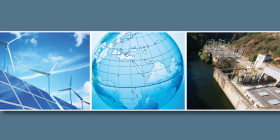A collection of resources and articles on topics of concern for domestic and international development finance institutions (DFIs) and export credit agencies (ECAs) advancing the public good through credit support, including project and corporate finance, direct equity, political risk insurance, private investment funds, capital market issuances, tier II (subordinated debt) lending, dual currency lending, onlending, local currency onlending, partial credit guarantees, risk sharing facilities, and trade finance.
U.S. International Development Finance Corporation: Blueprint for Defeating China’s Belt & Road Initiative
In this article, Jamie Head and William Cox provide their own views on how America’s development bank can prioritize strategic competition with the CCP.
Land Acquisition for Public Projects – An International Perspective
Although known by many different names, compulsory acquisition is rooted in virtually all legal systems. Given the importance to economic development and the disruption to displaced people, it is no wonder that the subject is controversial – theoretically and practically. This presentation compares the legal framework for defining public purpose and determining equitable and equal compensation in jurisdictions around the world. It concludes with a recommendation for those designing compulsory acquisition processes.
Advanced Traffic Management PPPs
Recurring and non-recurring congestion is increasing around the globe, imposing significant societal costs including decreased mobility, commerce, productivity and health, and increased expenses and energy use. There are two basic options to improve urban mobility – build more rode capacity or make better use of existing capacity through urban traffic management measures. This presentation explores different ways to involve the private sector in Advanced Traffic Management
Financing Battery Energy Storage Systems – Meeting the Challenges
In the African context, where many countries are leap-frogging reliance on traditional thermal power generation, battery energy storage systems and their varied applications offer numerous advantages to support the transition towards renewables-based power generation and transmission. In this article we consider some of the challenges of financing such systems presented by market regulation, Government support arrangements and technical constraints.
Zambia: Open Access Regime
With Zambia introducing an open access regime and prioritising climate-resilient energy sources like solar and wind, the country is paving the way for a more sustainable and reliable energy sector.
Getting Nigerian Oil and Gas Deals Done in a Shifting Regulatory Landscape
Host governments have long scrutinized transactions to buy or sell oil and gas assets. After all, those assets may be a critical state resource, and oil and gas operations can give rise to significant environmental risks. In African countries, however, there is a developing trend for increased governmental intervention in transactions as regulatory regimes become more sophisticated and are modernized to address environmental, and wider ESG, concerns.
Equity investments in privately held companies
The rights of a minority shareholder in a private company will depend on a number of factors, including the provisions of applicable law and the relative bargaining strength and expertise of the parties. In this article, partner James Comyn considers the sources of those rights and typical investor rights at differing levels of equity ownership.
Negotiating Direct Agreements
Direct Agreements are used to enhance a lenders’ security in a project-financed transaction and are typically required by lenders financing a large infrastructure project. Step-in and novation rights are often misunderstood by contract counterparties. See how they work and get to know the key negotiation points.
PPP Project Finance Webinar Series
In this three part webinar series hosted by the Commercial Law Development Program of the U.S. Department of Commerce, a panel that includes Jamie Head discusses various models a host government may use to raise financing for large infrastructure projects, including how to unlock the benefits of limited recourse financing by developing the project as a public private partnership with a bankable allocation of risks.
Private Investment in Transmission
A collection of materials on private investment in power transmission.
Nuclear Power Programmes: Presented to the African Legal Support Facility (ALSF)
In this presentation, Hunton attorneys Jason Parker, George Borovas and Yousef Shakah discuss how to establish effective legal and regulatory frameworks in Africa, Africa’s commercial nuclear sector, and the lessons learned from developing new nuclear projects.
This presentation was presented to the African Legal Support Facility (ALSF), a public international institution hosted by the African Development Bank (AfDB) Group.
In-Depth Explainer on Energy Storage Revenue and Effects on Financing
Battery energy storage projects create a range of revenue streams by serving a number of purposes for utilities and other consumers of electricity. Owners of batteries, including storage facilities with solar or wind projects obtain revenue under a multitude of contracts.
In this article, partner Michael Klaus provides an overview of the revenue models for non-residential energy storage projects and the process for financing parties as they evaluate the variety of sources of revenue.
Mini-grids – private investment requires robust legal frameworks
Extending main grids is no longer the most cost-effective way to connect around half a billion people to reliable electricity. In many cases, mini-grids can provide more reliable electricity at lower cost. To promote sustainable investments, legal frameworks should address a number of issues that are specific to mini-grids.
Hydroelectric IPPs – Addressing Hydrological Risks in a Rapidly Changing World
As climate change begins affecting the hydrology of hydroelectric projects, a framework for enhancing the climate resilience of both new and operating projects is emerging. Enhancing the climate resilience of existing projects and new projects – after they have entered commercial operations – may require significant project adaptations. The commercial implications of these adaptations are rarely properly addressed by the project agreements. When structuring new projects, project participants should consider increasing the level of attention they devote to the commercial implications that may arise if project adaptations are required during the operational phase of the project.
The ESG Attributes of Nuclear Energy
Although nuclear energy is arguably one of the cleanest and most sustainable sources of energy, funds that select investments based in part on their ESG attributes rarely consider nuclear energy an investible asset class. The outperformance of nuclear energy on a number of ESG criteria should lead to funds (and investors) to reconsider their position on whether nuclear energy belongs in portfolios selected on the basis of their ESG attributes.
How Tax Treaties Prevent Tax Leakage in Cross-Border Projects
Although what tax treaties do — which is to allocate taxing rights between two jurisdictions — might sound mundane, their potential for positive effect on cross-border transactions should not be underestimated.
Tariff Structures for Large Scale Hydroelectric IPPs
The structure of tariffs for large hydroelectric IPPs has a significant impact on the bankability of these projects. Discover a few options for structuring bankable tariffs for both storage and run of river hydroelectric projects.
Calculating Termination Payments and Purchase Prices
This article examines a few methodologies that can be used to calculate the purchase prices that become payable upon the exercise of a put option or call option under a PCOA, or the termination payments that become payable upon the termination of a power purchase agreement, concession, or other project contracts.
Public Private Partnerships: Financing and Finance Documents – Pre-Recorded Webinar
In this webinar hosted by the Commercial Law Development Program of the U.S. Department of Commerce, a panel that includes Alex Evans of the Development Finance Corporation, Justin Pavry of CDC Group Plc., and Ryan Ketchum review financing structures for infrastructure projects involving private sector participation and the finance documents that are involved in those financing structures.
Why Emerging Market Governments May Prefer Put & Call Option Agreements Over Sovereign Guarantees
Clients often ask us why an emerging market government tendering a PPP may prefer to use a put & call option agreement (a “PCOA”) to provide sovereign credit support for an offtaker’s or contracting authority’s obligations instead of a sovereign guarantee. This note examines five of the most commonly cited reasons that a government may prefer to offer a PCOA instead of a guarantee.
Renewable Energy (Ethiopia, 2020), Getting the Deal Through
A survey of the law and practice governing the development and financing of renewable energy projects in Ethiopia.
Renewable Energy (Nepal, 2020), Getting the Deal Through
A survey of the law and practice governing the development and financing of renewable energy projects in Nepal.
Reducing the risk of liability, fines and penalties under the FCPA and the Bribery Act
The last decade has seen intense enforcement activity by financial services regulators on both sides of the Atlantic as the fallouts of the global financial crisis still continue to fully unravel.
Are Local Currency Power Purchase Agreements Better for Offtakers?
The sustained collapse of commodities prices since the 2008 financial crisis has placed the currencies of many emerging market countries – including several countries that are actively procuring additional generation capacity by entering into long-term Power Purchase Agreements (PPAs) with independent power projects (IPPs) – under significant pressure.
Looking Toward Project Bonds For African Infrastructure, Law360
The infrastructure deficit is increasing in many countries in sub-Saharan Africa. A much-needed priority action plan, Programme for Infrastructure Development in Africa, has been developed by the African Union Commission, African Development Bank and the New Partnership for African Development Planning and Coordinating Agency. The priority action plan aims to address the problematic deficit by identifying $68 billion per year of energy and infrastructure investments that should be prioritized through 2020.
Cooperation amid conflict, IFC's Handshake
It’s not impossible for nations in conflict to put aside their differences to coordinate the delivery of natural resources, but it’s unusual. For the Democratic Republic of Congo, Rwanda, and Burundi, cooperation is transforming the shared Ruzizi River into a valuable source of hydropower for three peoples.
A Role for PPPs in African infrastructure, This Is Africa
Scaling up financing from the traditional sources of taxes, government borrowing, and aid will not be adequate to successfully address Africa's infrastructure gap.
Related Materials
Africa Projects - Power, Energy, & Infrastructure
Services
Energy
Financial Services
Telecommunications
Agency Finance
Africa
Asia Pacific
Latin America
Middle East
Energy and Infrastructure
Renewable Energy and Clean Power
Project Finance and Development
Public-Private Partnerships and Infrastructure
Lending Services
Banking and Finance
Private Equity
Private Investment Funds
Sustainability and ESG
Featured Insights

CLDP PPP Webinar Series: PPP Project Finance Overview
https://cldp.doc.gov/countries-regions/global-initiatives/ppp-resources/ppp-project-finance

Understanding Power Purchase Agreements, Second Edition

Understanding Power Transmission Financing

Decommissioning Hydrocarbon Assets—Finding Value in a Shifting Regulatory Landscape

Resource Financed Infrastructure: A Discussion on a New Form of Infrastructure Financing
- Partner
- Partner
- Partner
- International Counsel*
- Partner
- Partner
- Partner (Hunton Andrews Kurth Ltd.)
- Partner
- Partner
- Partner
- Partner
- Partner
- Partner
- Partner
- Partner
- Partner
- Consultant Attorney (Non-Firm)

Related Insights
- Publication
- 1 Minute ReadNews
- 2 Minute ReadNews



















